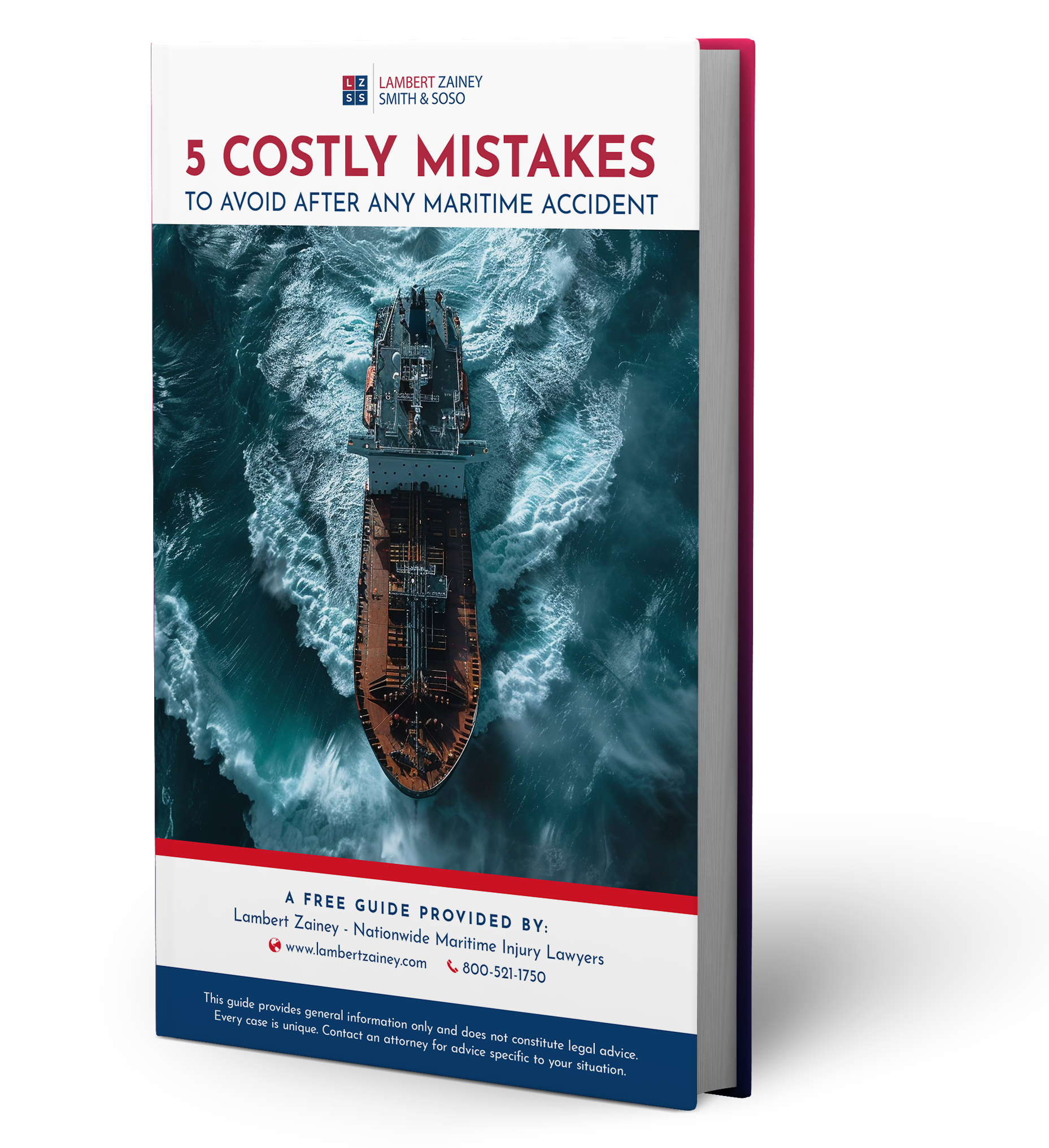Many jobs within the maritime industries require workers to perform repetitive motions. With repetitive motion work comes the risk of repetitive motion-related injuries. While non-life-threatening, these types of injuries can be painful, discomforting, and severely restrict physical movement. In the worst cases, maritime workers may no longer be able to perform their jobs due to the effects of their repetitive use injuries.

If you are a seaman, longshoreman, offshore oil rig worker, or other maritime worker who has become unable to perform your job duties as a result of a job-related repetitive use injury, you may be entitled to compensation for the damages caused by these injuries under the Longshore and Harbor Workers’ Compensation Act (LHWCA) or the Jones Act.
What are Repetitive Use Injuries?
Repetitive motion/use injuries go by a lot of names, including:
These terms all describe the painful and debilitating effects repetitive work has on the muscles, nerves, tendons, and soft tissues of the body. The fingers, hands, arms, shoulders, knees, neck, back, and legs are the parts of the body most commonly affected by repetitive stress disorders.
How Do These Injuries Occur?
Repetitive use injuries can occur among maritime workers for a number of reasons:
There are a wide range of repetitive use injuries that can affect a maritime worker’s ability to perform their job duties. Some of these conditions include:
There are many steps maritime employers can take to reduce or prevent repetitive use injuries. These include educating their workers about the risks of repetitive use injuries, providing them with PPE to reduce the damaging effects of repetitive motion work, installing ergonomically designed equipment and workstations, and requiring workers to take regular breaks while performing repetitive motion work.
Get Our FREE Guide to Protect Your Claim
What you do after an accident is critical. Insurance companies will try to get you to make mistakes that can hurt your claim. Our free guide can help you avoid these traps.
Download our complimentary guide: “5 Costly Mistakes to Avoid After Any Maritime Accident” to arm yourself with the knowledge you need to protect your rights.
Compensation For Maritime Repetitive Use Injuries
Maritime employers are required by law to maintain a safe working environment. When they fail to do so and a worker becomes injured as a result, the Jones Act and other maritime laws give workers the right to seek compensation for their injuries, including maintenance, cure, and pain and suffering.
If your repetitive use injuries were caused by unsafe work conditions that your employers were aware of, you may be entitled to compensation in addition to maintenance and cure benefits, especially if the symptoms of your repetitive use disorder prevent you from returning to your old job. The first step to getting the compensation you deserve for your maritime repetitive use injuries is to call Lambert Zainey.
Lambert Zainey has represented workers injured in a wide range of maritime accidents since the 1970s. Over the years, we’ve obtained hundreds of millions of dollars on behalf of our clients. Lambert Zainey is based in New Orleans, but we serve injured maritime workers all over the country.
Call (504) 581-1750 today to schedule a free, initial no-obligation consultation with an experienced maritime attorney.
Many jobs within the maritime industries require workers to perform repetitive motions. With repetitive motion work comes the risk of repetitive motion-related injuries. While non-life-threatening, these types of injuries can be painful, discomforting, and severely restrict physical movement. In the worst cases, maritime workers may no longer be able to perform their jobs due to the effects of their repetitive use injuries.

If you are a seaman, longshoreman, offshore oil rig worker, or other maritime worker who has become unable to perform your job duties as a result of a job-related repetitive use injury, you may be entitled to compensation for the damages caused by these injuries under the Longshore and Harbor Workers’ Compensation Act (LHWCA) or the Jones Act.
What are Repetitive Use Injuries?
Repetitive motion/use injuries go by a lot of names, including:
These terms all describe the painful and debilitating effects repetitive work has on the muscles, nerves, tendons, and soft tissues of the body. The fingers, hands, arms, shoulders, knees, neck, back, and legs are the parts of the body most commonly affected by repetitive stress disorders.
How Do These Injuries Occur?
Repetitive use injuries can occur among maritime workers for a number of reasons:
There are a wide range of repetitive use injuries that can affect a maritime worker’s ability to perform their job duties. Some of these conditions include:
There are many steps maritime employers can take to reduce or prevent repetitive use injuries. These include educating their workers about the risks of repetitive use injuries, providing them with PPE to reduce the damaging effects of repetitive motion work, installing ergonomically designed equipment and workstations, and requiring workers to take regular breaks while performing repetitive motion work.
Get Our FREE Guide to Protect Your Claim
What you do after an accident is critical. Insurance companies will try to get you to make mistakes that can hurt your claim. Our free guide can help you avoid these traps.
Download our complimentary guide: “5 Costly Mistakes to Avoid After Any Maritime Accident” to arm yourself with the knowledge you need to protect your rights.
Compensation For Maritime Repetitive Use Injuries
Maritime employers are required by law to maintain a safe working environment. When they fail to do so and a worker becomes injured as a result, the Jones Act and other maritime laws give workers the right to seek compensation for their injuries, including maintenance, cure, and pain and suffering.
If your repetitive use injuries were caused by unsafe work conditions that your employers were aware of, you may be entitled to compensation in addition to maintenance and cure benefits, especially if the symptoms of your repetitive use disorder prevent you from returning to your old job. The first step to getting the compensation you deserve for your maritime repetitive use injuries is to call Lambert Zainey.
Lambert Zainey has represented workers injured in a wide range of maritime accidents since the 1970s. Over the years, we’ve obtained hundreds of millions of dollars on behalf of our clients. Lambert Zainey is based in New Orleans, but we serve injured maritime workers all over the country.
Call (504) 581-1750 today to schedule a free, initial no-obligation consultation with an experienced maritime attorney.









